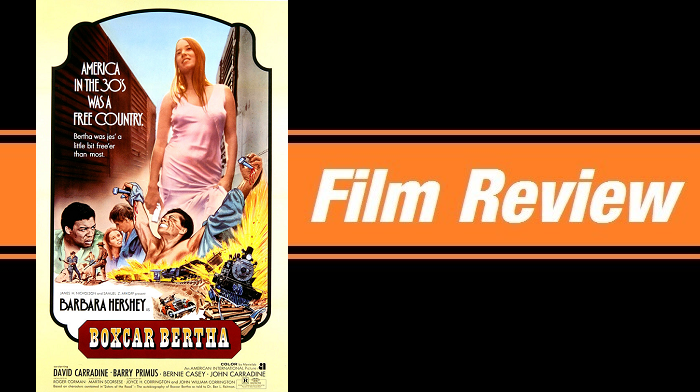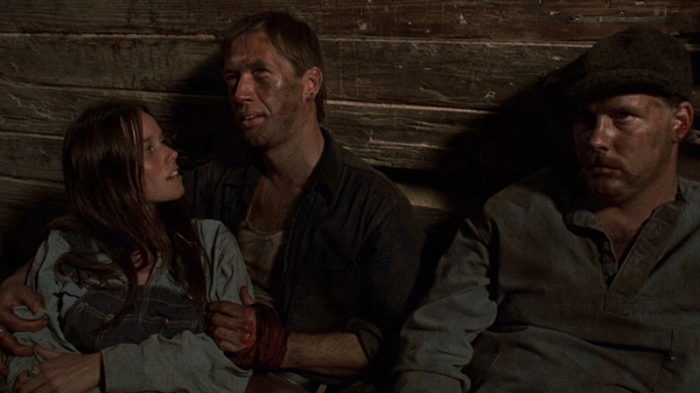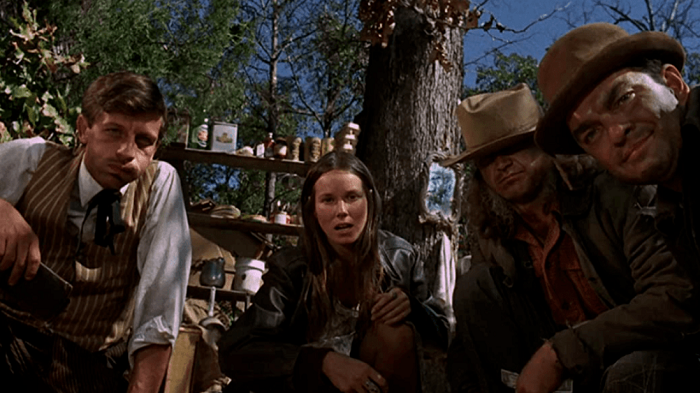
In my recent review of 1975’s “Death Race 2000”, I took some time to talk about the film’s producer, the legendary Roger Corman who just recently passed away at the age of 98. I shared how the independent cinema icon had been instrumental in launching the careers of numerous high profile filmmakers. Among them was none other than the ten-time Oscar nominated director, Martin Scorsese.
Roger Corman was hungry for another female gangster movie and was drawn to Ben Reitman’s 1937 novel “Sister of the Road: The Autobiography of Boxcar Bertha”. A script was written by the husband and wife duo of John William and Joyce Corrington and Martin Scorsese was hired to direct after impressing Corman with his debut feature, “Who’s That Knocking at My Door”.

“Boxcar Bertha” has many of the usual markings that accompany the majority of Corman’s early exploitation flicks. But the crafty Scorsese brought his own gritty sensibility which made it feel a little different. Regardless of what you call it, you can see the fingerprints of the director that Scorsese would quickly become. His specific attention to detail, his knack for immersing the audience into his well-drawn setting, his fluid use of the camera – it’s all on display and in many ways saves the movie from itself.
Set in the Depression era South, “Boxcar Bertha” follows an orphaned and dirt-poor young girl named Bertha Thompson (Barbara Hershey) who begins trainhopping after her father is killed in a cropdusting accident. A couple years later Bertha crosses paths and falls in love with a down-on-his-luck union organizer Big Bill Shelly (David Carradine). The couple are later joined by Rake Brown (Barry Primus), a slick but cowardly gambler who Bertha saves at a poker table, and by Von Morton (Bernie Casey), an old family friend who worked for Bertha’s father.
The group tries the ‘straight and narrow’ path, but in such hard times our foursome has to resort to robbing banks and passenger trains just to get by. They eventually accept that they’re criminals which ends up putting them in the crosshairs of a powerful railroad magnate (played David Carradine’s real-life father, John). Soon the press is covering their antics – embellishing their hardened status for big headlines. But much like in “Bonnie and Clyde” (a clear inspiration for Corman), the attention eventually catches up to them.

Though bound by the exploitative tropes of bare flesh and blood (a Corman dictum that even Martin Scorsese couldn’t escape), there was still room for the director to take a few of his own swings. Not all of them hit their marks. Take the handful of messy cuts and quick camera pans. And a couple of woefully unconvincing fight scenes that look even more dated that usual for that era of movie history. But then you have his deft handling of his performers along with the detail he pours into his rich Southern setting. And unlike many of Corman’s exploitation films, there’s no glamour in the violence. It’s rough, crude, and abrupt.
Through it all Bertha remains the centerpiece, wonderfully played by Hershey who guides the character from naive to streetwise, always adapting to survive yet maintaining a level of vulnerability that earns our empathy. Her performance can’t fully cover the handful of glaring flaws, and those with a distaste for Corman’s brand of exploitation will likely struggle to get past his obvious influence. But watching Scorsese at such an early stage of his career, playing around with formula, exploring techniques, and finding his cinematic form makes it worth watching on its own.
VERDICT – 3 STARS


It maybe a minor Scorsese film but I still think it’s an awesome film as it definitely showed a filmmaker still trying to find his craft and learn from it.
Absolutely